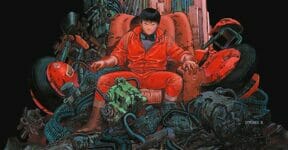The Sci-fi show Black Mirror has a collection of 6 seasons diving into alternate futures humanity could face. Each episode provides its own style and topic and the events that occur are a catalyst for further discussion. Even though Black Mirror has a majority positive response, some episodes have become classic episodes to skip. Find out the best and the worst episodes ranked from Black Mirror here!
Black Mirror Episodes Ranked
There are a total of 27 episodes spanning 6 seasons and will be ranked relating to each episode’s IMDb rating.
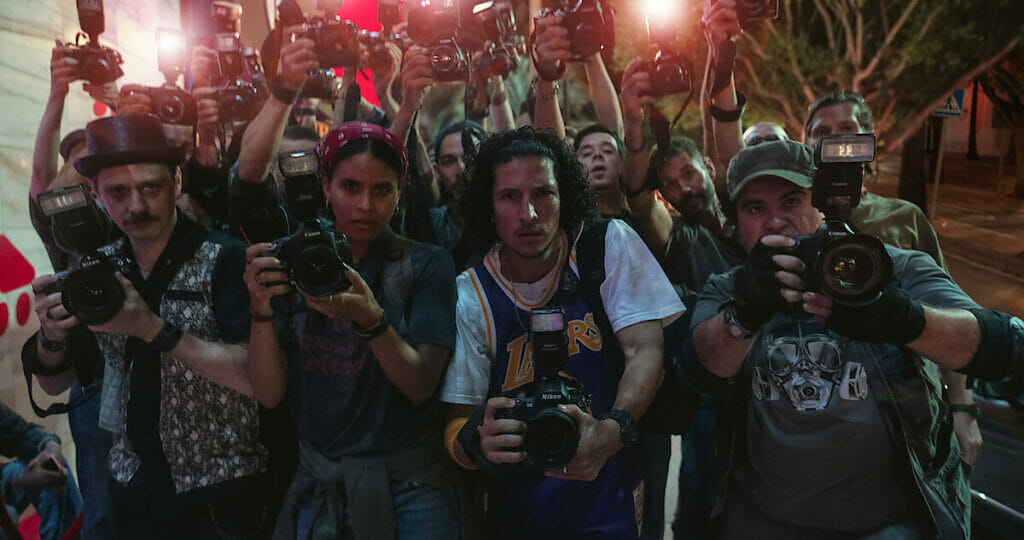
27. Mazey Day (5.3)
In 2006, Bo, a paparazzi photographer in Los Angeles, drives a television actor to suicide by selling scandalous photos of him and his secret male lover to a magazine. Overcome with guilt, Bo decides to quit selling photos. However, she is offered $30,000 to capture photos of actress Mazey Day, who disappeared after a hit-and-run incident in the Czech Republic. They find Mazey at a remote “rehab” facility and discover she was bitten by a werewolf, hiding to protect others. As they invade her privacy, Mazey transforms into a werewolf and attacks them. She pleads for Bo to shoot her, but Bo encourages her to take her own life instead.

26. Rachel, Jack and Ashley Too (6.1)
In a near-future world, a teenage girl named Rachel idolizes pop star Ashley O, whose consciousness is transferred into a robot doll named “Ashley Too.” The doll is designed to be Rachel’s companion and confidante. However, the real Ashley O struggles with her image and creative control under the management of her aunt. As Rachel bonds with Ashley Too, they uncover a dark secret about the real Ashley’s life and career. The episode explores the implications of AI companions, the commodification of artists, and the quest for authenticity and agency in the music industry.
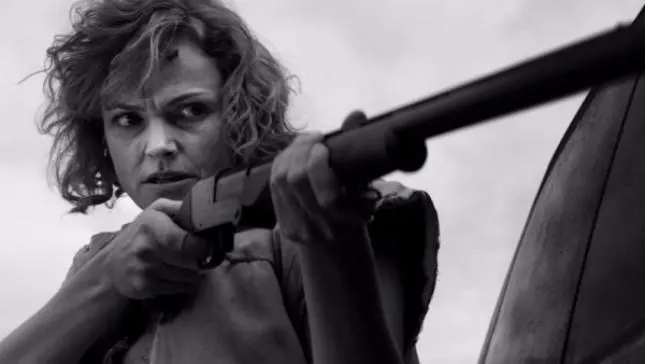
25. Metalhead (6.6)
In a bleak post-apocalyptic world, a woman named Bella and her companions searches for supplies in an abandoned warehouse. They encounter robotic guard dogs designed for military purposes, and one of the robots injures a group member. Bella desperately tries to escape the relentless pursuit of the robotic dogs, battling for survival in a desolate landscape. The episode presents a tense and suspenseful story with minimal dialogue and explores themes of survival, the dangers of unchecked technology, and the resilience of the human spirit.

24. The Waldo Moment (6.6)
Jamie, a failed comedian, voices a profane cartoon character named Waldo. Waldo is a satirical figure mocking politicians and the political system. As a publicity stunt, Waldo becomes a candidate in a local by-election. To Jamie’s surprise, Waldo gains unexpected popularity, resonating with disillusioned voters who see him as an outsider representing their frustrations. As the campaign progresses, Jamie finds himself entangled in a complex political game, where Waldo’s irreverence and unpredictability blur the lines between fiction and reality. Jamie must confront the consequences of his creation as it becomes evident that Waldo’s rise to power could have profound and unpredictable consequences on the political landscape.

23. Demon 79 (6.7)
The story revolves around Nida, a sales assistant facing discrimination and racism at the department store where she works. In the store’s basement, she discovers a talisman that releases a demon-in-training named Gaap, who instructs her to kill three people to prevent a nuclear apocalypse. Although hesitant, she succumbs to Gaap’s coercion and kills a bystander and a guilty man. She then targets a far-right Conservative politician, Michael Smart, but the police catch her before she can carry out the act. In the interrogation room, Gaap convinces Nida to embrace damnation together, and she accepts. Meanwhile, nuclear missiles devastate the world.

22. Striking Vipers (6.8)
Danny and Karl, long-time friends, reunite to celebrate Danny’s birthday. Karl gives Danny a new virtual reality video game called “Striking Vipers X,” an advanced version of a classic fighting game they used to play together. As they play the game, they discover a hidden feature that allows them to control characters in the game with their minds. This leads to a passionate and intense virtual relationship between Karl and Danny’s in-game characters, Roxette and Lance. As they continue to explore their virtual connection, it starts affecting their real-life relationships and raises questions about identity, desire, and the boundaries of human sexuality. The episode delves into themes of technology’s impact on human relationships and the complexities of virtual reality experiences.

21. Crocodile (7.3)
When Mia and Rob accidentally kill a cyclist while driving drunk, they decide to cover up the accident. Years later, Mia is a successful architect with a family, while Rob struggles with guilt and seeks to confess. Fearing the exposure of their crime, Mia takes extreme measures to protect her life. Meanwhile, a unique device that can access people’s memories comes into play when an investigator uses it to solve the hit-and-run case. As the investigator delves deeper into the case, the consequences of Mia’s actions become increasingly dire. “Crocodile” explores the theme of guilt, the fallibility of memory, and the lengths people will go to protect their secrets.

20. Arkangel (7.3)
After losing her daughter Sara for a brief moment, Marie signs up for a new parental monitoring service called Arkangel. The system allows her to track Sara’s location and monitor her biometrics. However, as Sara grows older, Marie’s surveillance becomes increasingly intrusive. She starts blocking unpleasant or harmful visuals in her daughter’s vision, leading to unintended consequences. As Sara becomes a teenager, the lack of exposure to life’s realities affects her emotional development, resulting in unforeseen challenges for both mother and daughter. “Arkangel” raises questions about the balance between parental protection and the impact of limiting a child’s experiences.
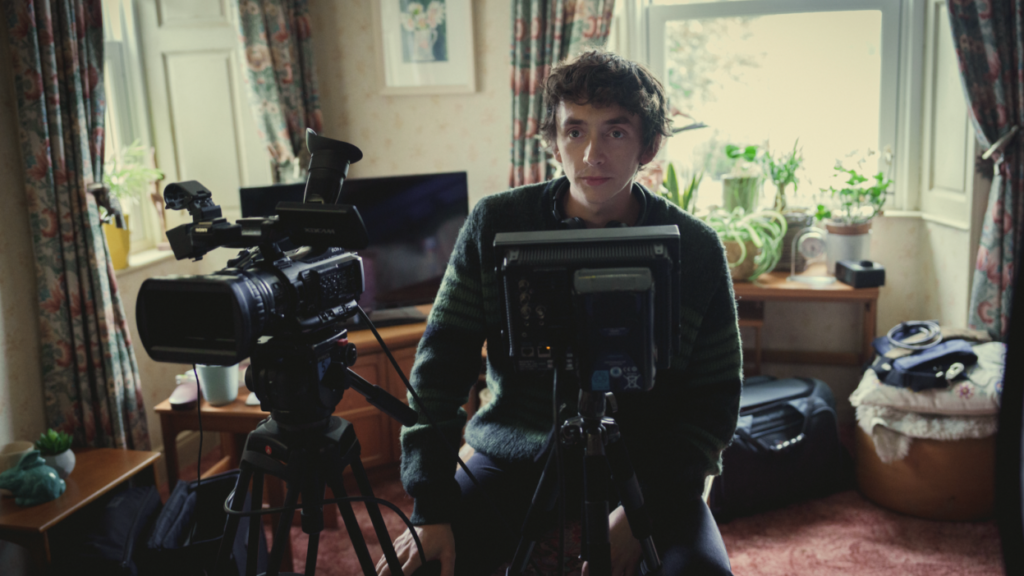
19. Loch Henry (7.3)
Film students Davis and Pia visit Davis’s mother, Janet, in the countryside town of Loch Henry. They learn about Iain Adair, a notorious serial killer, and decide to make a true crime documentary about him instead of their original film idea. While shooting the documentary, they discover VHS tapes stored by Janet, which actually contain footage of Adair’s crimes, revealing that he was an accomplice to Davis’s parents. Pia finds evidence of Janet’s involvement and tries to escape but tragically dies while crossing a river. Fearing exposure, Janet leaves a note for Davis and commits suicide. Years later, the documentary is released and becomes a success, bringing joy to the town but causing trauma to Davis. After the ceremony, Davis reads his mother’s suicide note again, which simply says, “For your film. Mum.”

18. Beyond the Sea (7.4)
In an alternate-history 1969, astronauts Cliff and David are on a six-year deep space mission, using mechanical replicas of themselves on Earth to be with their families. Tragedy strikes when David’s family is murdered by a cult, leaving him traumatized and withdrawn. To help David recover, Cliff allows him to return to Earth using his replica body. However, David becomes infatuated with Cliff’s wife, Lana, who rejects his advances. When David lashes out at their son, Lana wants his visits to stop. Meanwhile, Cliff discovers David’s inappropriate drawings of Lana but denies any affair. They both argue that Cliff doesn’t value his family enough. Eventually, David takes drastic action, murdering Cliff’s family while he is on a spacewalk. When Cliff returns, David offers him a seat, suggesting a sinister intention behind his actions.
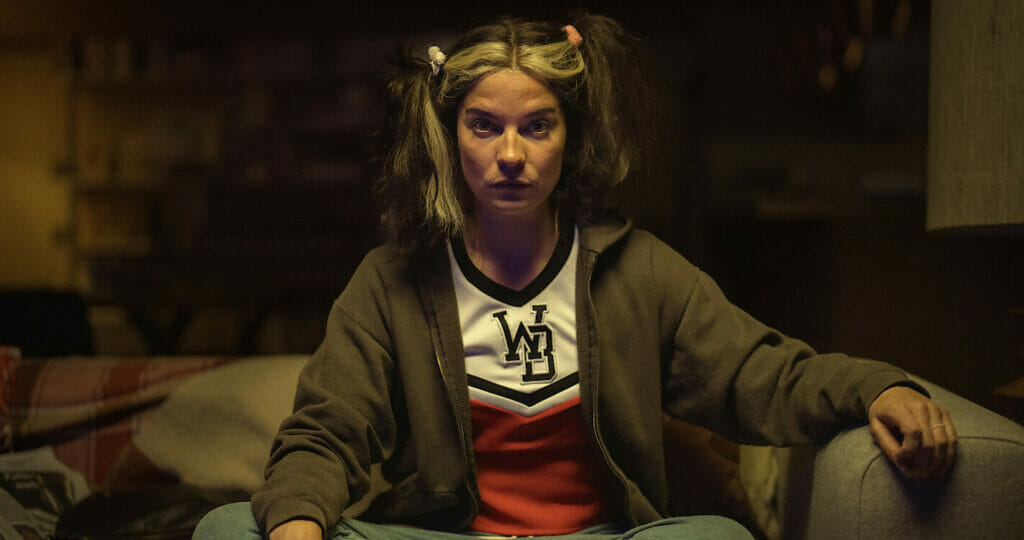
17. Joan is Awful (7.4)
Joan, a tech mid-manager, discovers that her life is being broadcast on Streamberry, a streaming app, in a show titled “Joan Is Awful,” starring Salma Hayek. Her lawyer informs her that she consented to the use of her personal data in the app’s terms and conditions. Streamberry uses a quantum computer to create the show based on data from her personal devices. Upset with Hayek, Joan decides to act rebelliously by defecating in a church, which is captured in the show. Hayek visits her and reveals that she also unknowingly signed away more rights to Streamberry. Together, they plan to break into Streamberry’s offices to destroy the computer, only to discover they are in a simulated reality, and “Joan” is portrayed by actress Annie Murphy.
Nevertheless, Joan destroys the computer, returning reality to its original state. In the real world, Joan is a young coffee shop owner, and both Joan and Murphy face consequences for their actions with house arrest for breaking into Streamberry’s offices and damaging property.
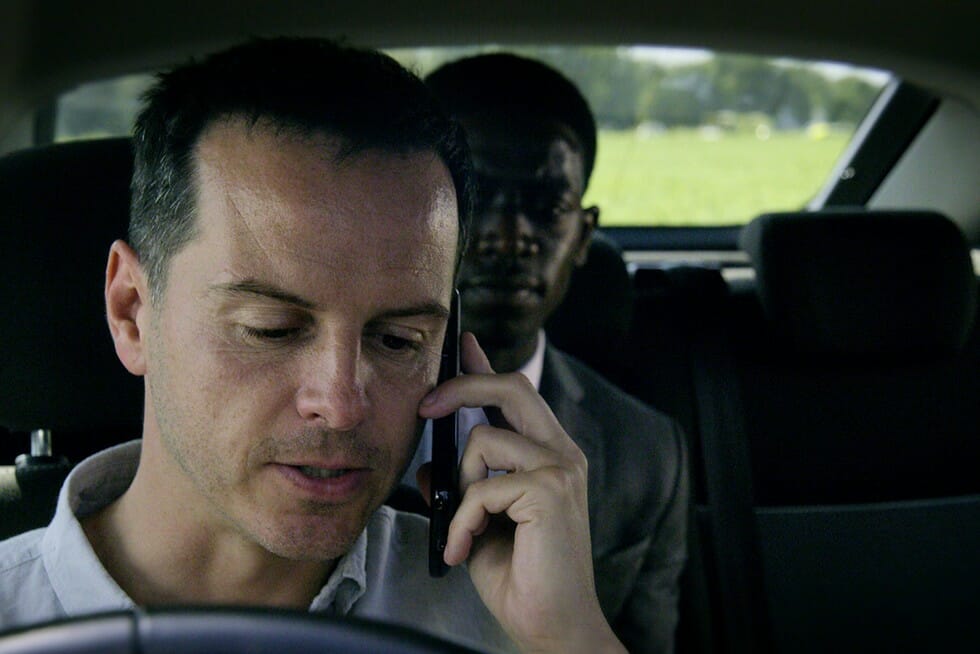
16. Smithereens (7.5)
Chris, a deeply troubled man, takes a Smithereen employee named Jaden hostage. He demands to speak with the company’s elusive CEO, Billy Bauer. Throughout the hostage situation, the media and authorities struggle to understand Chris’s motives, and a negotiation specialist named Detective Clayton is brought in to handle the situation. As the hostage situation unfolds, it becomes clear that Chris has a personal connection to the Smithereen social media platform, and his actions stem from a tragic event in his life. The episode delves into themes of technology addiction, social media’s influence on mental health, and the power dynamics between corporations and their users.

15. Men Against Fire (7.5)
In a post-apocalyptic world, soldiers like Stripe utilize an advanced military implant called MASS, which enhances their senses and combat abilities. The soldiers’ primary mission is to exterminate mutated humans known as “roaches,” who are seen as a threat to society. During a mission, Stripe’s implant malfunctions, and he discovers the horrifying truth behind the military’s operations. The “roaches” are not the monstrous creatures they appear to be; they are ordinary people whom the implant manipulates, making them appear dangerous.

14. The National Anthem (7.6)
When a beloved British princess is kidnapped, the kidnapper demands an outrageous ransom. Prime Minister, Michael Callow, must engage in a sexual act with a pig on live television to secure her release. The public is shocked by the demand, and the government faces a moral dilemma. As the deadline approaches, the Prime Minister must decide whether to go through with the act to save the princess or risk her life by refusing. The episode explores the power of social media, public opinion, and the extreme measures people are willing to take in the face of a crisis.
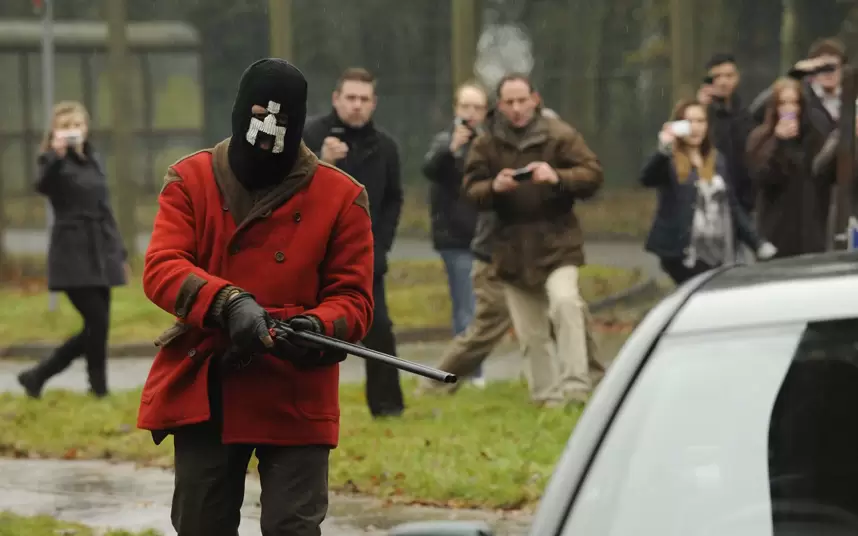
13. White Bear (8.0)
Victoria wakes up with no memory of who she is or how she got there, pursued by mysterious individuals. She discovers that nearly everyone around her is filming her on their phones but seems unwilling to help. She is drawn to a symbol known as “White Bear” and encounters Jem, a fellow survivor. Jem reveals that the town’s population is under the influence of a signal that erases their memories every night, forcing them to relive the same events repeatedly. As Victoria uncovers the truth about her past, she realizes she is part of a sadistic public punishment spectacle, where the populace watches her suffer through a distorted sense of justice. However, a twist awaits her as the episode takes an unexpected turn, challenging the audience’s perception of morality and punishment.

12. Be Right Back (8.0)
Martha and Ash are a loving couple, but tragedy strikes when Ash dies in a car accident. Grieving and unable to move on, Martha discovers a service that uses artificial intelligence to replicate the deceased based on their digital footprint. Tempted by the chance to have Ash back in her life, Martha signs up for the service. Initially, she interacts with a chatbot imitating Ash’s personality, but as the AI becomes more sophisticated, it can simulate his voice and mannerisms. The line between the virtual Ash and reality blurs, creating a complex emotional struggle for Martha as she grapples with the true nature of her loss and the implications of this technology on human connections.

11. Fifteen Million Merits (8.0)
In a dystopian future, people live in small cells and spend their days pedalling stationary bikes to generate energy. They earn “merits,” a form of currency, for their efforts. Bing, a disillusioned man, saves up his merits to skip ads and escapes the monotonous routine. He meets Abi, a woman with a beautiful singing voice. Bing encourages her to participate in a talent show called “Hot Shot” to escape their bleak existence. However, Abi’s dream quickly turns into a nightmare when she is forced into the pornographic industry. Bing, fueled by anger and despair, decides to use his own merits to make a powerful statement against the oppressive system.
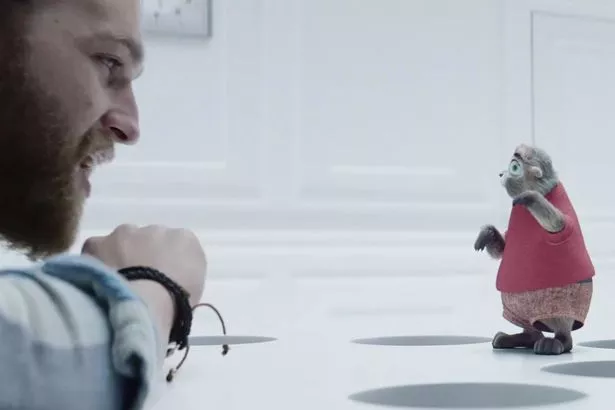
10. Playtest (8.1)
An adventurous traveller named Cooper arrives in London and seeks to earn some money to fund his return flight home. He signs up to participate in a secretive and advanced virtual reality gaming experiment for a company called SaitoGemu. Cooper’s mind is connected to the game, which aims to create personalized horror experiences by extracting his deepest fears. As the simulation progresses, Cooper finds himself in a series of terrifying and increasingly realistic situations. However, the lines between reality and the game start to blur, and he becomes trapped in a nightmarish loop where he cannot distinguish what is real.

9. USS Callister (8.3)
Robert Daly, a talented but socially awkward programmer, creates a virtual reality game based on his favourite TV show, “Space Fleet.” In the game, he is the captain of the USS Callister. He commands digital clones of his co-workers who mistreat him in the real world. These clones are unaware of their situation and fear Daly’s god-like control. When a new employee, Nanette, inadvertently gets trapped in the game, she allies with the other digital clones to find a way to escape and expose Daly’s dark fantasies. The episode explores themes of power, morality, and the consequences of unchecked virtual control.
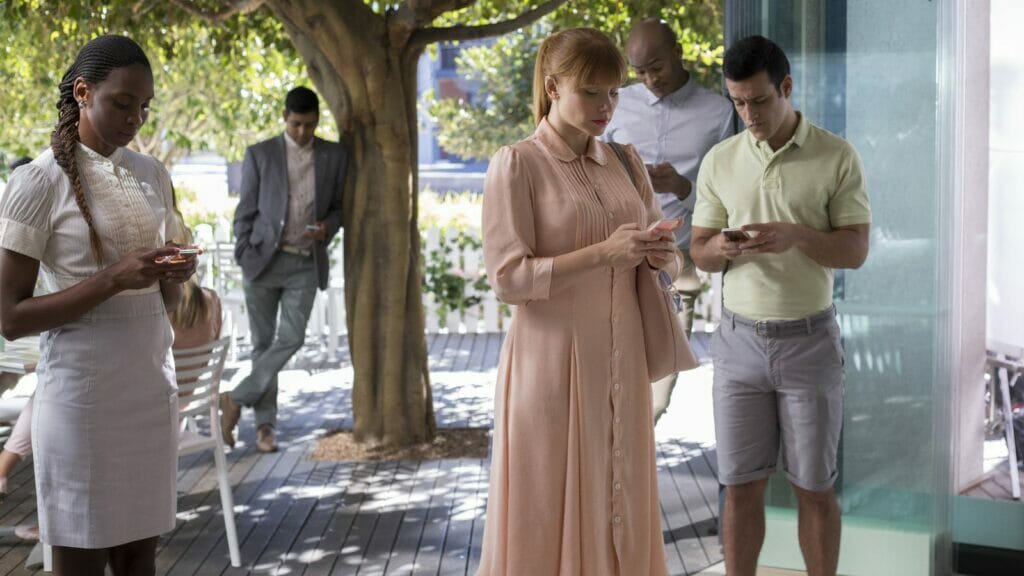
8. Nosedive (8.3)
In the not-so-distant future, social status is determined by constant social media interactions and ratings. Lacie Pound lives in a society where people are obsessed with their online presence and strive for high ratings. Lacie, determined to increase her score, receives an invitation to her childhood friend Naomi’s wedding, who is highly rated and influential. To attend the wedding, Lacie must travel by plane, and her social rating becomes crucial for securing a seat. However, a series of unfortunate events and interactions cause her rating to plummet, leading to a chain of increasingly disastrous consequences. As Lacie’s desperation to raise her score intensifies, she becomes more and more artificial in her interactions, ultimately leading to an emotional breakdown.

7. Shut Up And Dance (8.4)
Kenny, a young man, falls victim to a malicious hacker who gains control of his computer’s camera, capturing compromising footage of him. The hacker blackmails Kenny, threatening to release the video to his contacts unless he completes a series of tasks. Along with others facing similar predicaments, Kenny embarks on a disturbing and dangerous journey to follow the hacker’s instructions. As the story unfolds, the audience becomes aware of the various shameful secrets of the characters involved. The episode takes unexpected turns, revealing the dark and unsettling consequences of their actions and the lengths they go to protect their reputations and privacy.

6. Hated In The Nation (8.5)
In London, society is heavily influenced by social media trends. When a series of seemingly unrelated deaths occur, Detective Karin Parke and tech-savvy Blue Coulson begin investigating. The victims are connected by the use of a specific hashtag that trends on Twitter before their deaths. As the investigation progresses, the detectives uncover a dark conspiracy involving autonomous drone bees, a creation initially meant to help with pollination. These bees have been turned into deadly weapons, targeting individuals based on public votes influenced by the hashtag.

5. San Junipero (8.5)
Set in both the present day and a virtual afterlife called San Junipero, the story follows Yorkie and Kelly, two women who meet in a beach town and form a deep connection. San Junipero allows people to experience an idyllic life after death, regardless of their age at the time of death. As their bond grows, they must confront their fears and uncertainties about the implications of this digital afterlife. Yorkie, who has been in a coma for decades, grapples with the idea of eternal life in San Junipero, while Kelly is hesitant due to her previous experiences with love and loss.

4. The Entire History of You (8.5)
In a world where people have memory implants called “Grains,” Liam, a lawyer, becomes obsessed with the idea that his wife, Ffion, had an affair with an old friend named Jonas. Consumed by jealousy, Liam continuously replays his memories to find evidence of infidelity. The strain on their relationship intensifies as Liam’s suspicion grows. Ffion denies the accusations, but Liam becomes increasingly convinced of her betrayal. The episode delves into the dangers of obsessively reliving memories and the erosion of trust in a relationship. Whilst technology allows people to revisit their past experiences.
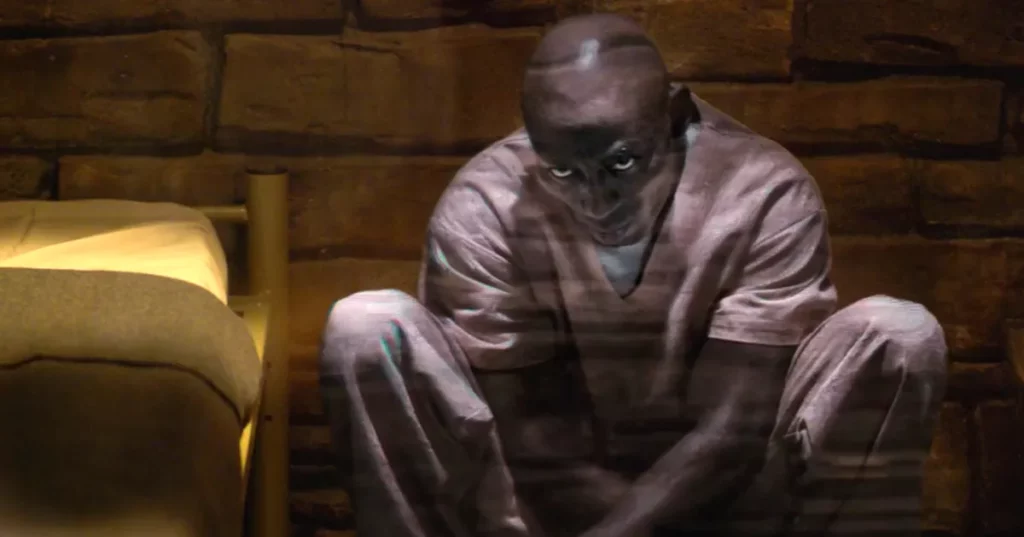
3. Black Museum (8.6)
Nish visits a seemingly abandoned roadside attraction called the Black Museum, run by the mysterious Rolo Haynes. As Nish explores the museum, Rolo shares three dark and interconnected stories involving controversial technology and its tragic consequences. These stories include a doctor who experiences the pain of others, a grieving mother who uses a device to communicate with her comatose daughter and a man who uploads his consciousness into his partner’s brain. As the tales unfold, Nish’s true intentions for visiting the museum are revealed. “Black Museum” is an anthology within an anthology, diving into the dark and morally complex world of technological advancements and human nature.

2. Hang the DJ (8.7)
In a society where dating is dictated by a sophisticated algorithm, Frank and Amy participate in a highly controlled dating system known as “The System.” They are matched together for a limited time. They follow the algorithm’s orders, hoping to find their ultimate compatible match. Despite their intense connection, they are repeatedly separated and paired with other partners. The couple struggles to be together and rebels against the constraints of “The System.” The episode examines the complexities of modern relationships and the quest for true love in a technologically determined world.

1. White Christmas (9.1)
Two men, Matt and Joe, find themselves stranded in a remote cabin during the holiday season. To pass the time, they share their past experiences with an AI program that simulates human consciousness, allowing them to relive their memories in real-time. As their narratives unfold, the episode delves into themes of loneliness, deception, and the ethical implications of technology. “
How about you? What is your favourite episode from Black Mirror? We’d love to hear from you.
Other things you might want to know:
Which is best season of Black Mirror?
According to Rotten Tomatoes, Season 1 is ranked the best season.
What is considered the best Black Mirror episode?
White Christmas is considered the best episode according to IMDb.
What’s the worst season of Black Mirror?
According to Rotten Tomatoes, Season 5 is ranked the worst season.
Check out other articles by month:





